- Home
- Patrick Robinson
Barracuda 945 (2003) Page 18
Barracuda 945 (2003) Read online
Page 18
He ran down the stairs, clutching everything under his arm, banged in the numbers to the burglar alarm, watched the digital sign leave now light up on the little screen, and slipped out of the door, double-locking it behind him.
He replaced the key and walked back to the taxi, which was now turned around ready to drive him back to the Embassy. Risky, sentimental mission accomplished.
Ravi ordered the cabbie to drive down to Regent's Park and to take a turn around the Inner Circle
, then make a slow circuit of the Outer Circle
, before heading west along the Marylebone Road
and then south to Marble Arch, Park Lane
, and Belgrave Square
.
The driver did as he was instructed, charged £40 for the trip and was glad to be handed £50 for his trouble.
Ravi spent the early evening with his Syrian colleagues, working on a detailed map of the Regent's Park area, and inspecting the beautifully made SSG 69 Austrian sniper rifle the marksman would use on Friday morning, Allah willing, in Regent's Park.
This is one of the most deadly long-range rifles in the world. Superbly engineered, in the right hands it can achieve a six-round grouping of less than 15.5 inches at a range of a half mile. Bolt-actioned, with a 6-by-24 ZFM telescopic sight, it fires a lethal, single 7.62-mm shell, which leaves the cold-forged barrel at a speed of 860 meters per second.
The specimen currently in the hands of the General was engineered into three pieces, to fit into a seventeen-inch-long, hard leather briefcase. Its black, matte-finished cycolac stock unscrewed at the thin neck right behind the trigger guard. The barrel unscrewed at a point four inches in front of the iron rear sight. This delicate conversion work had been carried out by an Austrian jeweler, with the help of a precision gunsmith, and it fitted snugly into deep velvet grooves, in the black innocent-looking briefcase.
Ready to fire, with a five-round drum magazine in place, it would take no more than twelve seconds to assemble, and even less to dismantle. The marksman would be dressed in city clothes, his hands spotless having made the professional sniper's routine check, wiping off any excess oil inside the rifle, thus eliminating any telltale puff of smoke on firing.
General Ravi liked it. He actually loved it, and hoped to hell the man he would meet on Friday morning knew how to use it. Knew how to blow away Arnold Morgan's head from the cover of a carefully selected forsythia bush, long beyond flower but large and leafy and strategically perfect to hide a lone assassin, east of the boating lake.
There would be no sound, save the whine of the 7.62-mm shell, and the smack of steel, crushing bone. The sniper would then walk softly, a full quarter-mile distance from the ensuing uproar, through the grounds of London Regent's College and out through Clarence Gate, holding his briefcase, a picture of preoccupied innocence, joining other early-morning workers.
They all dined with the Ambassador and the Head of Security at the Embassy that night. They served a fish and rice dish in the Arab style, but it did not compare with the sole at Gaya Rive Gauche. However, the dinner did reveal one illuminating fact: The Head of Security, a lean, swarthy Damascus-born, ex-tank Commander, was in fact Friday's marksman. He spoke little, but the Ambassador confirmed he was a distinguished soldier, and probably the best sniper in the Middle East.
Ravi slept fitfully, thinking of his parents, wondering if he would find them easily, wondering how they would greet him. He could hardly have blamed them if they were furious with him, and, of course, he ran the risk that his mother might faint at seeing him back from the dead in full Ascot rig. That'd be attractive, a prostrate mother, right out there in the paddock, in front of the Monarch, and God knows who else. Worse yet, he would probably be found guilty of committing the cardinal sin of the English upper classes— frightening the bloody horses.
As dawn broke over Belgrave Square
, General Ravi slipped out of the Embassy, into a chauffeured staff car and headed for Hyde Park Corner. They drove quickly through near deserted streets and turned up Portland Place
towards Regent's Park. It would be Ravi's last recce.
He noted there were no police on duty, at least none that he could see, and traffic conditions were certainly in his favor. If the Syrian sniper could get an accurate shot in tomorrow, the getaway would not be difficult. They drove slowly along the Outer Circle
, all around, past the zoo, and then back to Belgrave Square
.
Before midday, General Ravi was on his way to the Gold Cup, dressed immaculately, with the little cardboard pink badge, acquired easily by the Ambassador, pinned to his lapel. The inscribed words r. kerman, esq. were written beneath the date, June 22, and the day, Thursday. Tomorrow's badge would be green.
He made the journey to Ascot in a taxi. After the last race, he would walk down the road to the forecourt of the train station and pick up a different one. Today, he was anonymous, dressed identically to about 5,000 other men. But he deliberately did not speak to the driver on the way to the racecourse, burying himself in a corner of the backseat, studying the Racing Post, attempting to spot the dangers to his father's second-favorite for the big race. He read with some satisfaction that the early favorite, High Five, was withdrawn, injured. Homeward Bound, beaten by Persian Lady at Sandown, was now favorite, regarded as more likely to last out the marathon than the stamina-suspect Kerman mare.
They hit heavy traffic as soon as they left the M4 Motorway, crawling in a long queue toward Windsor Castle, but Ravi had left plenty of time, and they drove slowly along the straight road bordering the western edge of the racecourse, arriving at the main intersection just after 1:25.
Ravi jumped out and headed across Number One car park, entering the racecourse at the less busy end, God's little acre where English families had for generations occupied the same picnic spots. The place was awash with champagne. There were small trestle tables, set behind large Mercedes and Rolls-Royces, groaning under the weight of mighty plates of poached salmon, hauled out of the Scottish rivers, drenched in mayonnaise, and now consumed boldly with cold new potatoes, the standard rations of the British establishment at play.
Ravi strode through the morning suits, looking neither left nor right. He reached the ticket checkpoint and walked past the gateman, his badge plain to see. Inside, he purchased a racing form, and stood under a towering oak tree, finding his bearings.
He sensed a determined movement of the swarming crowd around him, heading for the Royal Enclosure. He checked his watch, which showed 1:40, and as he did so, he heard the distant announcement that the horse-drawn Royal carriages were now inside the gates and proceeding up the racecourse toward the Enclosure.
The nineteen-year-old Queen Victoria made that same procession in the first year of her reign back in 1838, and it looked much the same now, the reigning Monarch in the lead carriage, drawn by four Windsor grays, followed by an assortment of Royal Princes, Princesses, Dukes, and Duchesses. The Gold Cup itself has a similar pedigree dating back to 1807. Ravi Rashood, terrorist, killer, and danger to society, felt an overwhelming lack of empathy toward the pageantry of England.
He checked out the saddling enclosure, then strolled down to the main parade ring, where, he knew Persian Lady would make her entrance at around 3:10, walking from the upper paddock, down the broad, grassy, white-fenced walkway, in the hoofprints of the mighty.
He considered he would need to be in place by then, perhaps walking down behind the mare with his parents. He resolved then to see them at the saddling boxes, where Charlie McCalmont would be tightening the girths, and his parents would be waiting outside, hopefully alone. Luckily, he had never met Charlie.
His plan laid out, Ravi sat quietly on one of the little round stools leaning on the fence, watching the first arrivals for the Ribblesdale Stakes, a high-class twelve-furlong contest for fillies. As the space around the ring filled up with throngs of racegoers, he stood up and walked back through the crowd. But then fate struck a near-morta
l blow.
He felt a tap on his shoulder, and a very cultured, very English voice said cheerfully, "Ray. . . Ray Kerman. Christ, old boy, I thought you were dead!"
Ravi half turned and found himself staring into the pink, round, smiling face of Rupert Studley-Bryce, resplendent in a black silk top hat, and gray morning coat, a scarlet carnation half concealing his little pink badge. He and Rupert had shared a study for two years at Harrow.
Ravi smiled carefully, overwhelmingly pleased that his badge was engraved with his correct name. "Hello, Rupe," he said. "What a surprise. Didn't know you were a racing man."
"Well, I'm not really. But I usually have a day at Ascot. But gosh, it must be twenty years . . . not since we left Harrow. Last time I heard about you there was a worldwide hunt going on. What was it, missing in action somewhere in Israel? People thought you were dead."
"Not quite. But it was bit close. Actually, I've been on a highly classified mission for the Regiment in the Middle East—been back for about six months."
"Look, forget this bloody fillies race. Come and have a drink in the White's Club tent, just over there." Rupert was a big man, and he steered Ravi so determinedly forward, the ex-SAS officer found himself en route to the private Ascot oasis of the world's most eminent, and oldest, men's club, as if dissent was out of the question.
White's main building stands in unannounced glory at the top of St. James's Street, around the corner from the Ritz. It was founded in 1693, a haven for the English aristocracy, cabinet ministers, and great business leaders—men who prefer the company of their own kind. Its doors are, broadly, closed to show business, bookmakers, professional sportsmen, Flash Harrys, and other persons of low rank and breeding.
The Club's Committee has erected its private marquee just above the parade ring at Ascot for the better part of a century. The caterers serve a very good lunch, and copious amounts of alcohol. Television sets line the inside for those disinclined to watch the races live. White's stands as an unashamed bastion of privilege and elitism, members only, and even they have to give prior notice of intent to attend.
There are wealthy men who would kill to be invited for membership. General Ravi Rashood was probably the first person in White's history to be absolutely appalled at being invited inside the sacred tent flaps.
But inside he was. "Couple of glasses of champers," Rupert called to the barman. "Krug. Large."
Then to Ravi, who had removed his hat, "This is really nice, old chap. I remember distinctly being very upset at the reports of you going missing. You sure you're okay?"
"Never better, Rupe," replied Ravi, slipping easily into that old-public-schoolboy mode of speech, perfected at Harrow, and nurtured by some for all the days of their lives.
"Well, you know about me. Dull army officer, scratching around the desert looking for terrorists. How about you?"
"Well, if you've been back in England for a few months, you must know I'm a Member of Parliament? Last election. Nice safe seat in Buckinghamshire."
"Yes. Of course," said Ravi, hastily. "Absolutely. I just meant lately, any great excitement? We get pretty insular down at Hereford, dealing with military matters we think are important when no one else gives a damn."
"You sure you've been here six months? I like to think my maiden speech in the Commons caused a national uproar," said Rupert, quaffing deeply the magic bubbles from Rheims.
"Well, I've been here on and off. I'm involved in heavily classified work, and I can never talk about it."
"Turned you into a bloody spy, eh? Anyway, I expect you remember the bit where I said the Labor Government was the least able, the worst group of would-be executives ever to attempt to run anything? You must remember . . . I said they had never made one single correct executive decision in nine years, and that I would hesitate to ask any one of them to take charge of a country pub, never mind a country. It was all over the front pages and the television."
"Oh, of course, Rupe. I'd just forgotten it was you. I remember the bit about the country pub."
"I hope you haven't forgotten that three national newspapers came out and said that here at last was a fighting Conservative who might one day lead the Tory Party. Your old roommate, eh? Future Prime Minister."
"Can't say I recall that part," said Ravi, with care, but smiling.
"Well, never mind that, old boy. It's damn nice to see you. Just having a drink together, after all these years. Takes you back. Remember that little room in the old Dog and Fox, eh? Remember when we used to sneak out to that pub?"
"God, do I. Those were the days, right? Away from the cares of the world. Tell you what, how about some dinner next week. I'll be at the MOD for another couple of weeks."
"Perfect. I'd really enjoy that. I'm mostly on my own during the week, in the London flat. You know, wife and kids at the old family home in Bedfordshire. I usually get down there on Friday nights. How about Tuesday?"
"I'm sure that'll be fine. Let me have your office number, will you? I'll confirm it with your secretary tomorrow."
"Great. Call 0207-555-4337. Ask for Lizzie: She'll probably answer the phone. Why not come over for a drink in Annie's Bar in the Commons? We can dine at the Club if you like."
"Rupe, that all sounds great. But I have to go right now. Meeting the parents just before the second race. This has been real fun. I'll call in the morning."
"God, I'm just so glad you're alive. There's an Old Harrovian golf meeting at Sunningdale in three weeks. There's a lot of the chaps who will be delighted you're still with us. G'bye, Ray."
Ravi replaced his hat, and walked up to the now empty rail around the early saddling enclosure. He pulled out his cell phone and dialed 0207-555-4337.
"Hello, Lizzie. Yes, this is John Farmer, an old friend of Mr. Studley-Bryce. . . We were at Harrow together. . . Matter of fact, I just left him in the White's tent at Ascot."
"Yes, Mr. Farmer, how can I help?"
"Lizzie, he wrote down his home address for me to send him an invitation to a lunch in Oxford, and I must have thrown away the piece of paper with a couple of betting slips. Losers, of course! He said to send the invite to his flat, and there's so many people here, I just can't find him. Luckily, I took down his office number. You're my lifeline!"
Lizzie laughed. "You could just send it to me. I'll see that he gets it."
"I don't care where I send it," chuckled Ravi. "But he did say specifically to send it to the flat."
"Okay. It's Flat 9B, Prior's Court, 72, Marsham Street, London
SWTV 2SA."
"Thanks very much. I'll pop it in the post."
By now he could hear the commentary on the second race, the Norfolk Stakes, five furlongs for two-year-olds. It would take only around sixty seconds, less if one of them was really classy. And already he could see stable staff leading up the runners for the Gold Cup, the next race.
He waited discreetly at the far end of the preliminary enclosure, knowing the trainer would appear any moment, carrying the saddle, and the number cloth for Persian Lady, who was already walking briskly around the perimeter, so close he could touch her as she went by, her name carried on the stable girl's right armband.
He guessed his parents would accompany Charlie McCalmont on the long walk from the weighing room, down the lawn, through the middle of the empty parade ring, and on up the hill to the paddock. Sure enough, there they were, and his heart missed several beats as he saw his mother, and his father marching resolutely toward possible victory.
They both looked immaculate, his father in a black tailored morning coat, a navy blue shirt with a white collar, the perfectly knotted, maroon silk tie, tucked into a gray waistcoat with a gold watch chain, charcoal gray-striped pants.
His mother wore an elegant dark green suit, which showed off her slim figure. Her lustrous dark hair was almost hidden beneath a very chic, wide black hat, obviously from Paris. But she looked older, and walked in a self-conscious way, as if aware that the eyes of the crowd were upon her as the fabu
lously lucky owner of one of the leading runners in the Gold Cup. She was walking just behind Richard and the trainer, and she was smiling a smile of immense pleasure, imperfectly masked by modesty. Ravi guessed her heart would be pounding, but perhaps not so hard as it might be a few minutes from now, when he made his opening appearance.
Persian Lady's connections came within twenty-five yards of Ravi, heading straight to the first saddling box on the left. For a few moments, they stood watching the mare coming toward them, and then Charlie gestured to the girl to bring her in.
Persian Lady dipped her head and turned, walking into the box. She turned again easily, facing out of the door, the girl at her head, and Charlie gently placed the saddle on her back.
Ravi ducked under the rail and set off across the grass, swiftly approaching his mother, bang on her six o'clock. Silently, he stood behind her, before leaning forward and saying softly into her ear, "Steady, Mum. Don't scream or faint. I'm right here and I'm just fine."

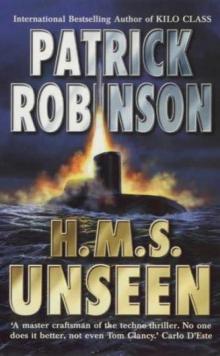 H.M.S. Unseen am-3
H.M.S. Unseen am-3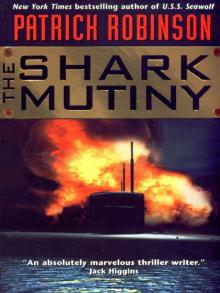 The Shark Mutiny (2001)
The Shark Mutiny (2001)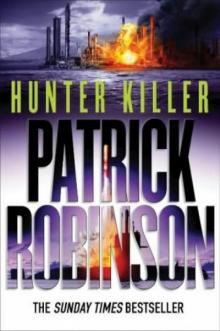 Hunter Killer am-8
Hunter Killer am-8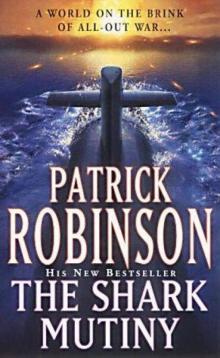 The Shark Mutiny am-5
The Shark Mutiny am-5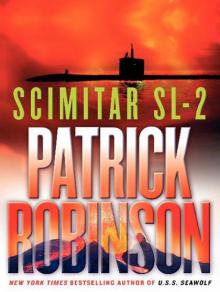 Scimitar SL-2
Scimitar SL-2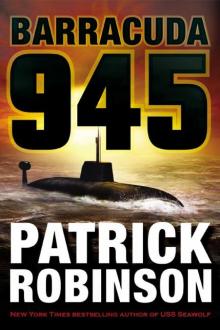 Barracuda 945 am-6
Barracuda 945 am-6 Hunter Killer
Hunter Killer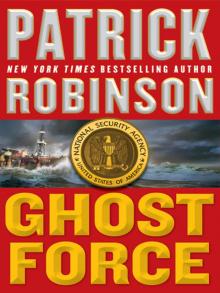 Ghost Force
Ghost Force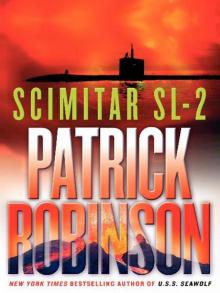 Scimitar SL-2 (2004)
Scimitar SL-2 (2004)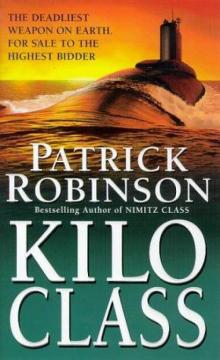 Kilo Class am-2
Kilo Class am-2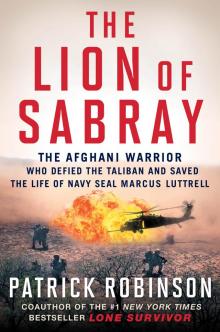 The Lion of Sabray
The Lion of Sabray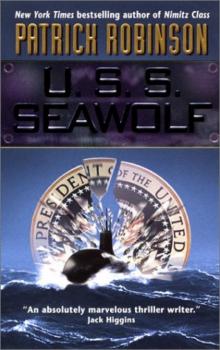 U.S.S. Seawolf am-4
U.S.S. Seawolf am-4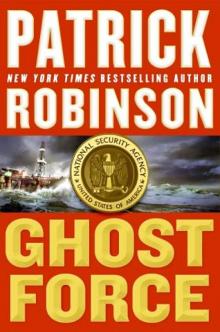 Ghost Force am-9
Ghost Force am-9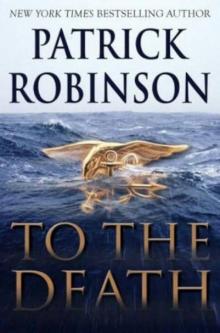 To the Death am-10
To the Death am-10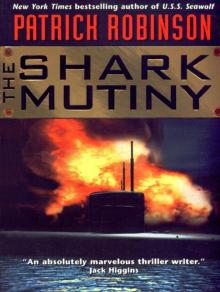 The Shark Mutiny
The Shark Mutiny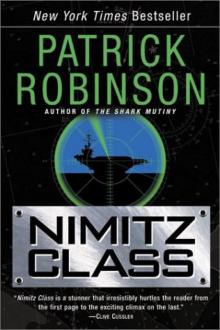 Nimitz Class am-1
Nimitz Class am-1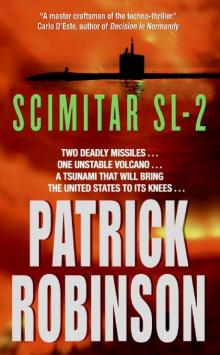 Scimitar SL-2 am-7
Scimitar SL-2 am-7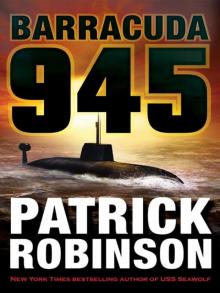 Barracuda 945
Barracuda 945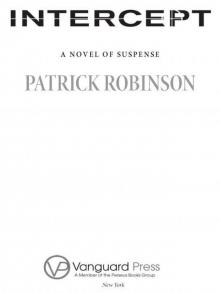 Intercept
Intercept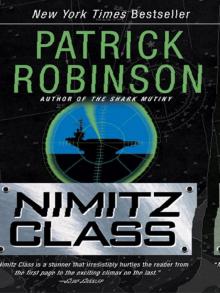 Nimitz Class (1997)
Nimitz Class (1997)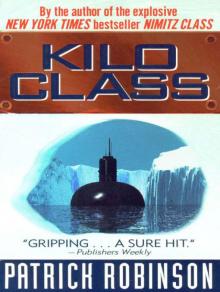 Kilo Class
Kilo Class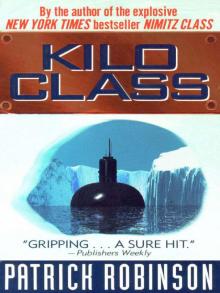 Kilo Class (1998)
Kilo Class (1998)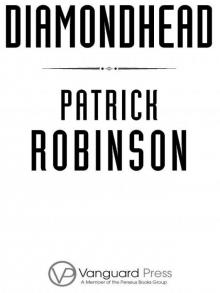 Diamondhead
Diamondhead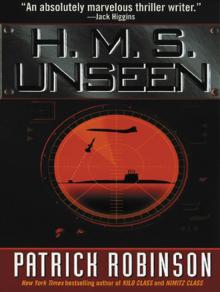 H.M.S. Unseen
H.M.S. Unseen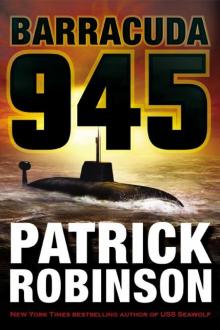 Barracuda 945 (2003)
Barracuda 945 (2003)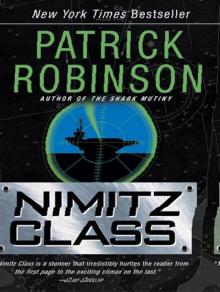 Nimitz Class
Nimitz Class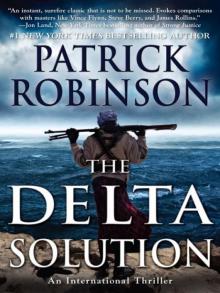 The Delta Solution
The Delta Solution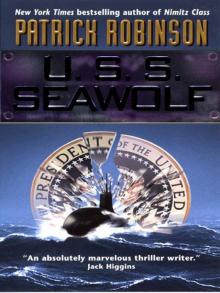 U.S.S. Seawolf
U.S.S. Seawolf